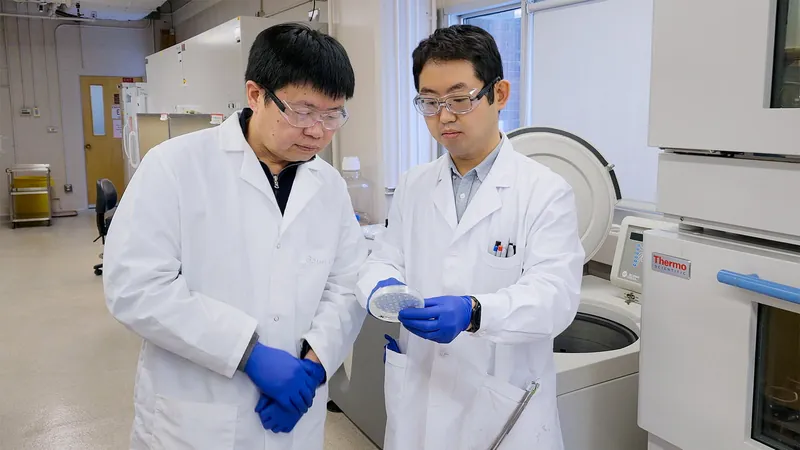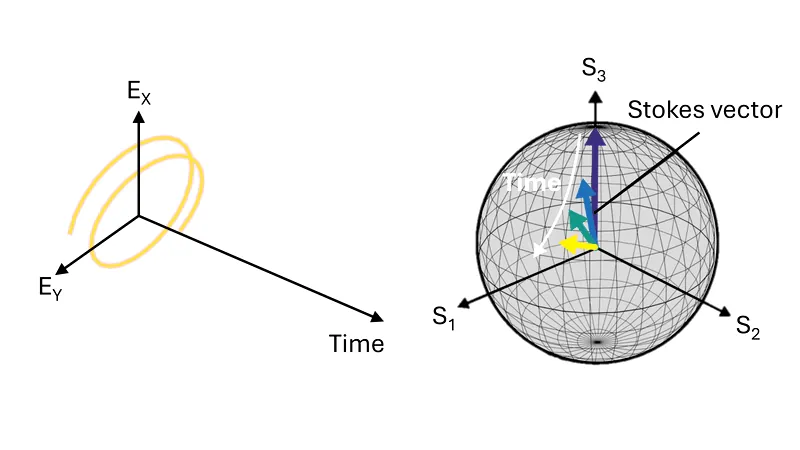
Groundbreaking Research: Scientists Create Supercharged Yeast to Produce Healthy Fatty Acid!
2025-01-21
Author: Liam
Groundbreaking Research in Yeast Innovation
In an exciting development, researchers from the University of Alberta have successfully engineered a strain of baker’s yeast to yield significantly higher levels of punicic acid, a healthy fatty acid primarily found in pomegranates. This innovative approach uses fermentation technology, presenting a promising and sustainable method for not only producing this valuable fatty acid but also cultivating yeast biomass, which is an excellent supplemental protein source for both the food and animal feed industries.
Economic and Efficient Production
According to Guanqun (Gavin) Chen, an associate professor in the Faculty of Agricultural, Life & Environmental Sciences, and a Canada Research Chair in Plant Lipid Biotechnology, the breakthrough has paved the way for more efficient and economical production of this high-value lipid. "We could produce this high-value lipid much more quickly and economically in the future, without needing to use arable land," he emphasizes, highlighting the potential for developing nutritionally enhanced specialty oils sustainably.
Health Benefits of Punicic Acid
Punicic acid, derived from the seed oil of pomegranates, is known for its remarkable health benefits, which include lowering cholesterol, reducing inflammation, and possessing anti-cancer properties. However, Chen points out that the pomegranate’s low seed-to-fruit ratio and limited oil yield make it an expensive commodity compared to other oilseed crops like canola.
CRISPR-Based Gene Shuffling Technique
The research team employed a cutting-edge technique called CRISPR-based gene shuffling to introduce specific genes associated with punicic acid synthesis directly into the yeast's genome. This novel methodology represents the first instance of using CRISPR to genetically modify yeast for the production of uncommon plant-derived fatty acids. The shuffling technique allows for the exploration of numerous gene combinations in a much more efficient manner than traditional methods, which typically involve testing each gene individually.
Creating a Library of Yeast Strains
"This process allowed us to create a library of yeast strains. By screening this library, we could identify the most effective gene combinations much quicker," explained Juli Wang, who conducted the experiments to obtain her PhD in plant science. The findings led to an astonishing 80-fold increase in punicic acid content, reaching an impressive 26.7 percent—the highest recorded by scientists using engineered microorganisms or plants until now. This level indicates a groundbreaking potential for commercial production.
Stability in Production
Moreover, the newly developed yeast strain maintains stable levels of punicic acid throughout fermentation batches, addressing a significant challenge in commercial-scale production. As Wang noted, "This stability means that the beneficial genes integrated into the yeast won’t be lost during fermentation cycles."
Future Implications and Patents
The ongoing research has already resulted in a provisional patent application, illustrating the team's commitment to bringing their innovations to market. They plan to conduct experiments on a larger scale using lab fermenters, setting the stage for potential commercialization.
Expanding the Research Horizon
In addition to punicic acid, Chen envisions the versatility of their CRISPR-based approach to engineer yeast strains that could produce other valuable unusual fatty acids, such as those from castor oil. The implications of their research extend beyond immediate applications—there is exciting potential for developing an array of other bioproducts, creating a ripple effect in the biotechnology industry.
Conclusion: A Sustainable Future
Stay tuned as these talented researchers continue their groundbreaking journey—could this lead to a new wave of sustainable food production that benefits our health and the environment? Don't miss out on the latest updates!









 Brasil (PT)
Brasil (PT)
 Canada (EN)
Canada (EN)
 Chile (ES)
Chile (ES)
 Česko (CS)
Česko (CS)
 대한민국 (KO)
대한민국 (KO)
 España (ES)
España (ES)
 France (FR)
France (FR)
 Hong Kong (EN)
Hong Kong (EN)
 Italia (IT)
Italia (IT)
 日本 (JA)
日本 (JA)
 Magyarország (HU)
Magyarország (HU)
 Norge (NO)
Norge (NO)
 Polska (PL)
Polska (PL)
 Schweiz (DE)
Schweiz (DE)
 Singapore (EN)
Singapore (EN)
 Sverige (SV)
Sverige (SV)
 Suomi (FI)
Suomi (FI)
 Türkiye (TR)
Türkiye (TR)
 الإمارات العربية المتحدة (AR)
الإمارات العربية المتحدة (AR)